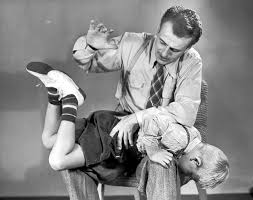Testimony on First State Resolution to Encourage Parents
to Refrain from the Use of Corporal Punishment
Public Hearing at Massachusetts State House, Oct. 20, 2015
Ronald Goldman, PhD, Author of Resolution
As a psychological researcher and children’s advocate, I speak for those who are powerless and sometimes harmed, those whose rights and feelings are sometimes unrecognized. Also, I raise the issue of corporal punishment (CP) because, as stated in the resolution, the evidence is overwhelming that it is harmful, and yet it needs more attention because it is misunderstood, common, and accepted. We have learned throughout history that what is common is not necessarily in conformance with the highest principles of behavior.
Lack of Empathy and Ethics
Corporal punishment is the intentional infliction of physical pain for punishment, including slapping, spanking, and hitting with objects. Defenders of corporal punishment often believe that it is “mild.” This suggests a lack of empathy for children. By definition, CP causes pain. It is not “mild” to children. Also, causing any unnecessary pain to another person breaches ethical principles and the Golden Rule. Furthermore, if it is not ethical to hit a person who is 18 years old or over, then it is not ethical to hit a person who is under 18.
As long as hitting does not result in anything which is a recognizable physical or emotional injury, it is CP. Would you accept being hit as long as there was no recognizable physical or emotional injury? Of course not. Why treat children, who need our protection, with less protection than we would want for ourselves?
Disruption of Parent-Child Relationship
Sometimes you can control how a child behaves with force, but you can never control how a child feels with force. This is the reason the parent-child relationship suffers when force is used. Also, when college students were asked for their reactions to being hit when they were young, 42% recalled hating the parent that hit them.
Whether you were hit as a child and whether you have hit a child, what we know now is different than what we knew years ago. We did the best we could at the time. With new information and awareness, we can change our opinions and behaviors. Let’s remember that there was a time when spousal abuse was accepted. Our cultural attitude about that has changed, as it has changed about many other things.
International and Professional Support
The fact that the United Nations Convention on the Rights of the Child and 44 countries [60 in 2020] have adopted positions opposing CP [in all settings including the home] is clear evidence that it is an appropriate subject for public debate, and such positions are useful in raising public awareness about it. Also, there is wide support for the goals of the resolution from the American Academy of Pediatrics, American Psychological Association, the Surgeon General, and children’s advocates. Please take their support seriously.
Personal and Social Effects on Adults
We often hear about the need to do the right thing, to speak out against injustice, and to protect the vulnerable from pain and harm. This is our chance to act. How we treat children may be the most important issue we face. We have known for over 100 years that early childhood experience is associated with adult feelings, attitudes, and behaviors. How we treat children affects what kind of adults and parents they become and what kind of world they create. Psychiatrist Karl Menninger said, “What’s done to children, they will do to society.” It’s no accident that we are one of the most violent developed countries in the world.
In a cross-cultural study of preschool aggression. French children acted aggressively 1% of the time while American children did so 29% of the time due to our cultural practices. Let’s change them.
I urge you to help break the chain of pain. Let’s make a public statement in support of children, the family, and society.

